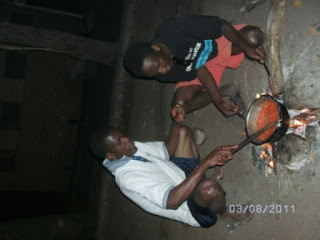GENDER ISSUES IN AFRICA
MEANING OF GENDER
Sex: refers to the biological or physical condition of being male or female
Gender: refers to the social condition of being male or female
Gender focuses on how one is perceived in terms of the roles and responsibilities based on being male or female. It implicates on the one’s personality, condition (material well being) and position or status within the society.
MEANING OF DEVELOPMENT IN RELATION TO GENDER
Gender development is the process of removing socio-cultural hindrances to mobility, access to resources and opportunities resulting in an emergence of a more just society.
The process demands that women and men must actively participate in the decision making by contributing their desired changes and information sharing on achievements.
HISTORICAL PERSPECTIVE TO GENDER
This history is traced from 1945 after the end of World War 2 and the eventual formation of United Nations as it incorporated within its charter the concept of equality between men and women in the articles that talk of human rights.
United Nations has utilized several approaches to achieve this equality.
1. Anti-poverty approach (1960-1970)
This approach emphasised on reducing poverty in poor countries. It focused on income generating activities in order to increase capital accumulation and increase per capita income.
This did not reduce poverty especially for vulnerable groups like women and children, the elderly and those with disabilities.
2. Welfare Approach (1970-1980)
This was the second developmental decade by United Nations. It focused redistribution of control over resources. Special welfare programs were introduced for the vulnerable groups. In case of gender the aim was to address the inequalities that existed between women and men. This lead to the development of women in development approach
3. Women in development (WID) approach (1975-1985)
This approach aims at increasing opportunity for women to participate in, contribute to and benefit from development of their society and economies.
This approach has faced challenges because
a. It focused exclusively on women in the development process
b. The approach assumes that women are passive recipients of development process. this is wrong position as they are also active partakers of development process
4. Gender and development (GAD) approach (late 1980’s to date)
This was developed to include both women and men as agents of development. It is based on the fact that when women and men are taken as partners in development then such effort will successes in bring women equality and empowerment.
GENDER ISSUES CRITICAL TO DEVELOPMENT
1. Gender, Education and training
All children are supposed to have their right to education respected. It is education that enables one to acquire skills and knowledge that could improve one’s life and enables him or her contributes to development of the society. It pathetic that in most African societies girl and boys are treated differently when issue of education comes into play.
Girls are discriminated against due to culture, early marriages, pregnancies, sexual harassment.
Girls take up the role of taking care of the home at the same time ensuring that they attend school. This makes them have less time for school which in the end leads to drop of the performance at school. For some girls the decide to drop out of school
Due to tradition girls or young women of school going age are forced to get married. This makes them to drop out of school. Due to their low level of education it is further difficult for them to get employment.
Therefore access to and attainment of education on equal basis is an essential tool for women to become effective agents of change.

No comments:
Post a Comment